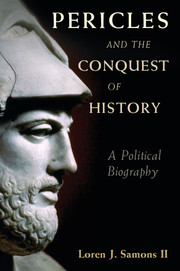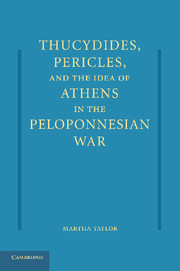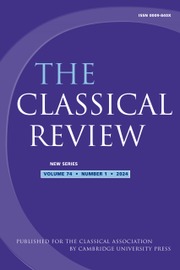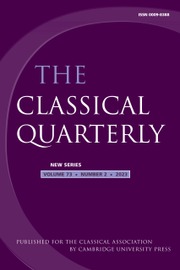The Cambridge Companion to the Age of Pericles
Mid-fifth-century Athens saw the development of the Athenian empire, the radicalization of Athenian democracy through the empowerment of poorer citizens, the adornment of the city through a massive and expensive building program, the classical age of Athenian tragedy, the assembly of intellectuals offering novel approaches to philosophical and scientific issues, and the end of the Spartan-Athenian alliance against Persia and the beginning of open hostilities between the two greatest powers of ancient Greece. The Athenian statesman Pericles both fostered and supported many of these developments. Although it is no longer fashionable to view Periclean Athens as a social or cultural paradigm, study of the history, society, art, and literature of mid-fifth-century Athens remains central to any understanding of Greek history. This collection of essays reveal the political, religious, economic, social, artistic, literary, intellectual, and military infrastructure that made the Age of Pericles possible.
- Chapters written by leading scholars but accessible to the general public
- Chapters are free-standing and can be read individually by those interested in a particular subject
- Treats Athens as historical phenomenon rather than as a model to be admired, emulated, or condemned
Reviews & endorsements
'The contributors have written extensively on the topics which they discuss in this Companion. They have managed to condense their own researches and other recent scholarship into very readable articles.' Arctos
Product details
March 2007Paperback
9780521003896
400 pages
226 × 150 × 8 mm
0.64kg
Available
Table of Contents
- Introduction: Athenian history and society in the Age of Pericles L. J. Samons
- 1. Democracy and empire P. J. Rhodes
- 2. Athenian religion in the Age of Pericles Deborah Boedeker
- 3. The Athenian economy Lisa Kallet
- 4. Warfare in Athenian society K. A. Raaflaub
- 5. Other sorts: slave, foreign, and female identities in Periclean Athens Cynthia Patterson
- 6. Art and architecture Kenneth Lapatin
- 7. Drama and democracy Jeffrey Henderson
- 8. The bureaucracy of democracy J. P. Sickinger
- 9. Plato's sophists, intellectual history after 450, and Sokrates Robert W. Wallace
- 10. Democratic theory and practice R. Sealey
- 11. Athens and Sparta and the coming of the Peloponnesian War J. E. Lendon
- Conclusion: Pericles and Athens L. J. Samons.






